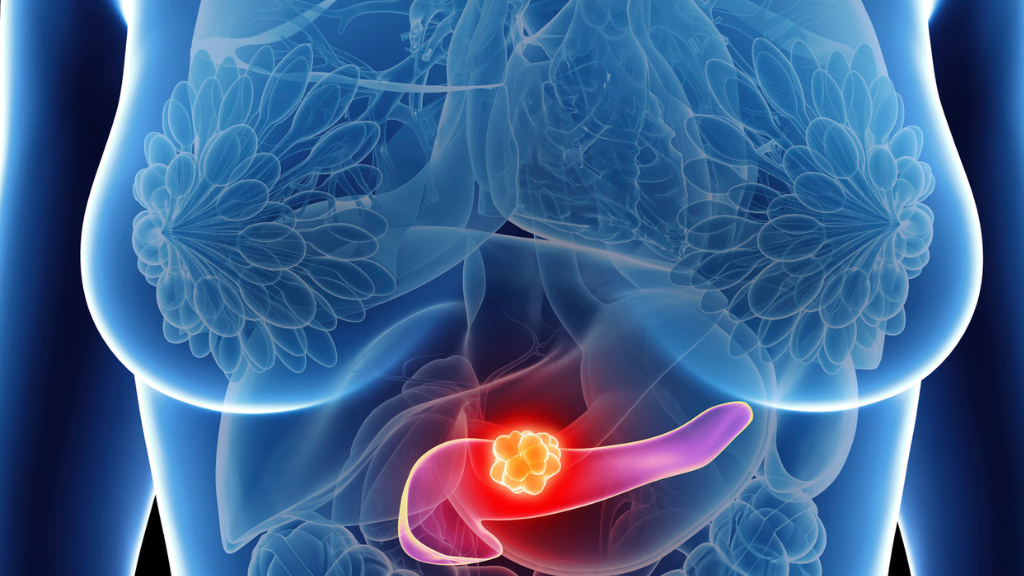A True story of strength and resilience
With every challenge in life, there lies an underlying force called willpower that never allows you to give up, no matter how dark a phase can get. Pancreatic Cancer is one such phase where one's health battles the darkest chapter. Known for being one of the most aggressive forms of cancer, Pancreatic Cancer is very difficult to treat and the diagnosis becomes challenging. The body doesn’t show the symptoms until the disease is advanced. However, amidst this difficult phase, there are inspiring stories of people who have not only battled this deadly form of cancer but also risen as a survivor.
Before delving into the story let’s understand Pancreatic Cancer as a condition.
What is Pancreatic Cancer?

Firstly to understand the core function of the pancreas, they are located behind the lower part of the stomach. It produces enzymes that aid in digestion as well as hormones that aid in blood sugar regulation. Pancreatic Cancer begins when cells in the pancreas mutate (change) and grow uncontrollably, resulting in the formation of a tumor. They are rarely diagnosed in the early stages when the chance of curing them is the greatest. This is because it doesn't cause symptoms until after it has spread to other organs. In most cases, Pancreatic Cancers start in the duct of the pancreas. The primary pancreatic duct, also known as the duct of Wirsung, links your pancreas to the common bile duct.
The Whipple procedure, or pancreaticoduodenectomy, is the main treatment for pancreatic cancer in the pancreatic head. This surgical operation involves removing the pancreatic head, a substantial part of the duodenum (a segment of the small intestine), a portion of the bile duct, the gallbladder, and related lymph nodes. In certain complex cases, it may also entail removing the pancreatic body, the entire duodenum, and part of the stomach. Typically, the Whipple procedure lasts about six hours, and most patients stay in the hospital for one to two weeks afterward.
Symptoms and Causes
As the condition doesn’t show any symptoms in the early stages, they’re mainly detected when the tumor is metastasized. Some of the symptoms during this phase are:
Jaundice
Lack of appetite
Blood clots
Dark urine
Weight loss
Nausea and vomiting
Fatigue
Itchy skin
Middle back pain
Light colored stool
New onset-diabetes

The symptoms of Pancreatic Cancer may vary as they may also involve diarrhea and anemia.
What Causes Pancreatic Cancer?
It isn’t quite clear what instigates the condition, but there are a few risk factors that have been identified by the experts, which leads to Pancreatic Cancer. They’re as follows
Obesity
Type 2 Diabetes
Chemical exposure, such as pesticides and petrochemicals.
Chronic pancreatitis
Hereditary chronic pancreatitis due to changes in the gene (mutations) passed on from birth.
Smoking or chewing other forms of tobacco.
Hereditary disorders caused by changes in genes like the BRCA1 or BRCA2 genes, passed down from a parent.
Winning the Battle against Pancreatic Cancer - A story of Strength and Resilience
I am a 73-year-old woman who was diagnosed with pancreatic cancer in Orissa. At the time of diagnosis, I also had hypertension, which added complexity to my medical condition. My journey with pancreatic cancer led me to several hospitals in Orissa, where every doctor recommended a surgery. However, given my age, there was a huge risk associated with undergoing surgery for pancreatic cancer, especially the Whipple surgery. It was during this time that I came to know about Dr. Shivakumar from Trust in Hospital through an online patient reference. Initially I reached out to him over a call from Orissa, and after our conversation I decided to go to Bangalore and consult with him in person. After I reached the hospital, a series of investigations and check-ups were conducted. I was reassured by the medical team's expertise and their thorough evaluation. And with my newfound confidence, I took the decision to proceed with the Whipple surgery.
The surgery itself was an extensive procedure, which lasted for almost 12 hours. Post the surgery, I recovered very well, and within a week, I was discharged from the hospital. And not just that, the reports clearly confirmed the successful removal of the tumor, eliminating the need for therapies like chemotherapy and radiation therapy. It's been almost two years since the surgery, and I am thankful that I am now in excellent health. I continue to visit Trust Hospital for my regular follow-ups.
My battle with cancer was made possible because of my unwavering willpower and the exceptional medical team that guided me through this challenging journey. At the age of 73, I underwent a complex level 5 surgery which showed that with determination and the right medical support, one can overcome and challenge. If I can do it, anyone can do it.
Pancreatic cancer is a very severe health condition, but these stories of survival conveys hope, a strong willpower, and the right medical care can make a world of difference. Every journey is unique but they all share one common power to fight the battle which is courage and willpower.
Blog Reviewed By: Dr. Shiva Kumar Uppala